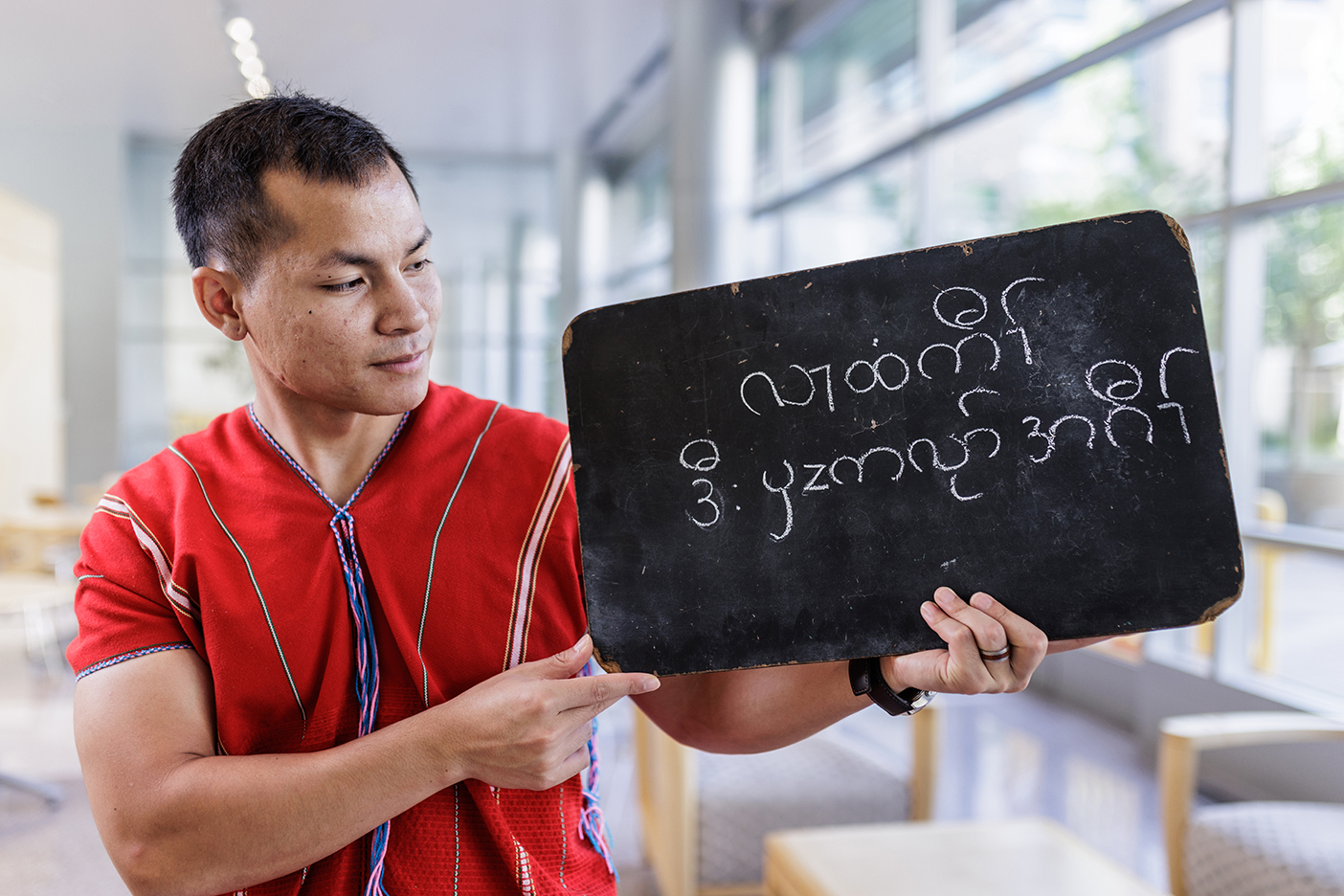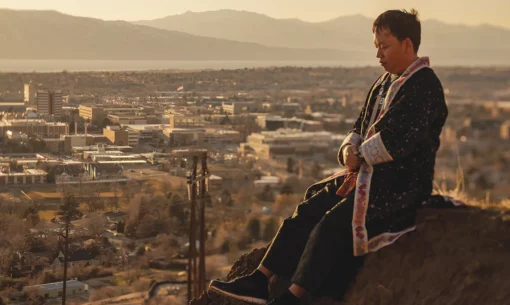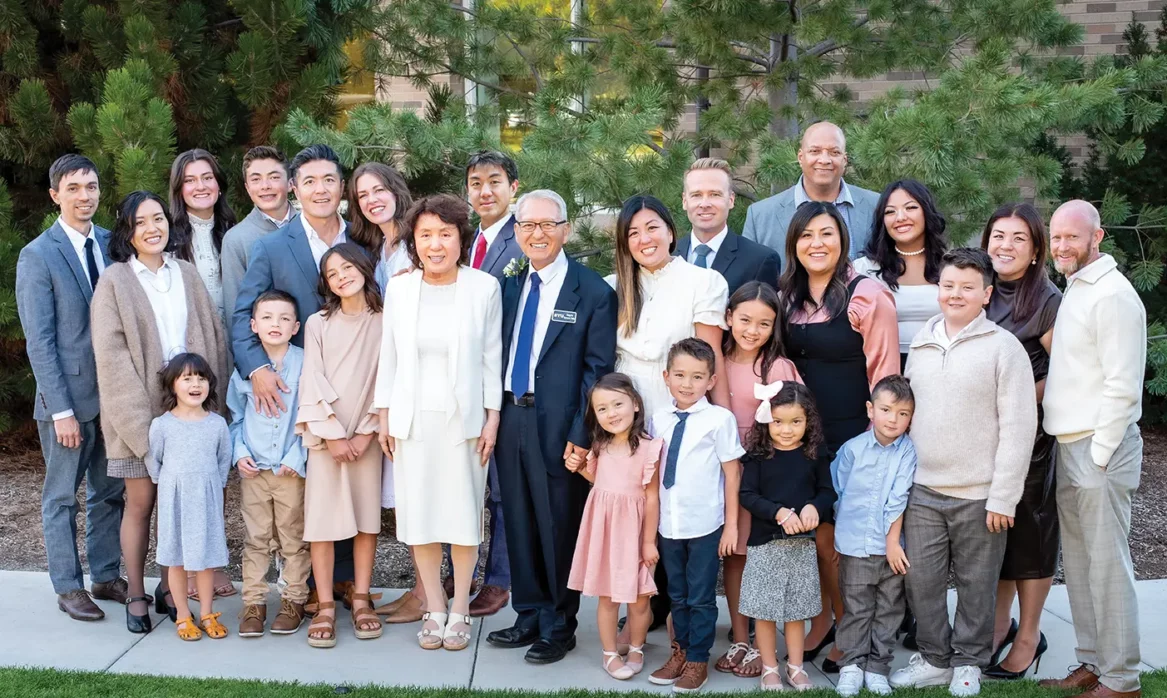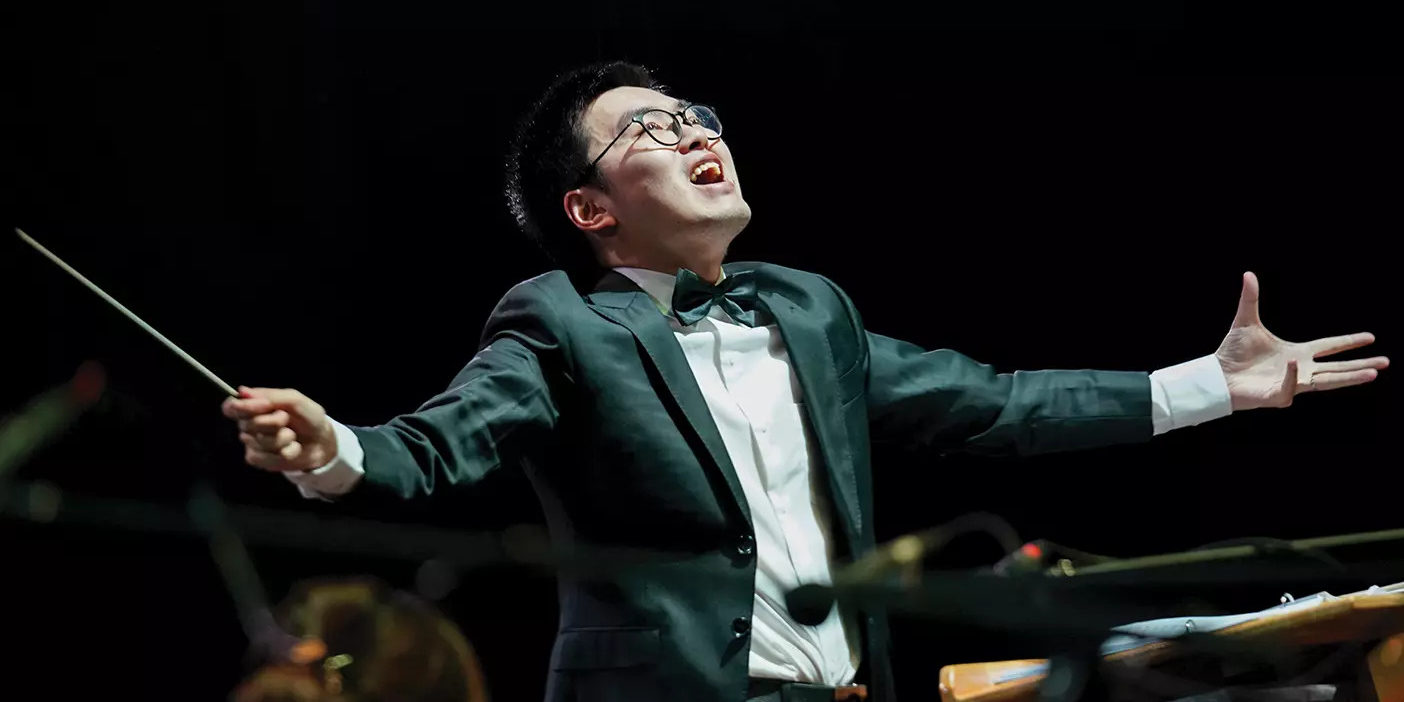Laesgaw K’Chawtee aims to empower his people—at BYU, he’s starting by teaching their language.

You won’t find many BYU sophomores teaching a 300-level language course. But international-relations major Laesgaw K’Chawtee’s (’26) plans have always been a little different.
K’Chawtee returned to BYU for his second year fresh off a mission to Kentucky, where he served members of his own southeast Asian ethnic group, the Karen. During winter 2022 he worked with the Center for Language Studies to teach Karen 330 to returned missionaries.
“BYU is the first American university to teach Karen,” K’Chawtee notes. In a way, he says, “it’s the first one to recognize that Karen is worthy as a language—and worthy as a people—to protect.” Displaced from their homelands on the Burma-Thailand border in the 19th century, the Karen have since faced oppression by the government of what is now Myanmar.
“My parents would tell me about the struggles and trials [of our people],” K’Chawtee says. “My whole purpose in life is now forever intertwined with that cause of liberation.”
When K’Chawtee was 8 his family moved from Thailand to Buffalo, New York, where he befriended young men from The Church of Jesus Christ of Latter-day Saints and later was baptized.
On his mission, K’Chawtee connected the Karen people’s plight to a crucial gospel principle. Their struggle, he realized, “is about agency.” And for him, expanding his people’s agency means maintaining their culture. “BYU has allowed me to [teach Karen]. That’s always a battle that I can win, every time I teach it.”
While Karen 330 was a language class, it also explored the culture and historical struggle of the Karen. “I love the people that I served,” says Lindsey Middleton (’24), one of K’Chawtee’s students. “Anything that I can do to understand them better is really important to me.”
Moving beyond mere instruction, the class concluded with a call to action, says Marshall S. Butler (’24), another student. “[K’Chawtee] wanted to promote this idea that once you’re called to a Karen mission, you’re called for life,” says Butler.
K’Chawtee’s students take that commission to heart. Butler developed language-training resources for missionaries. Middleton worked with K’Chawtee on material for the MTC’s Embark language app; another classmate helped native speakers in translating sacred temple ordinances into Karen.
K’Chawtee always knew he wanted to help his people. But his mission—and his time at BYU—has elevated his vision. “What can I do for them so that they can help other people and help themselves?” he often asks himself. “That’s the gospel mindset.”












